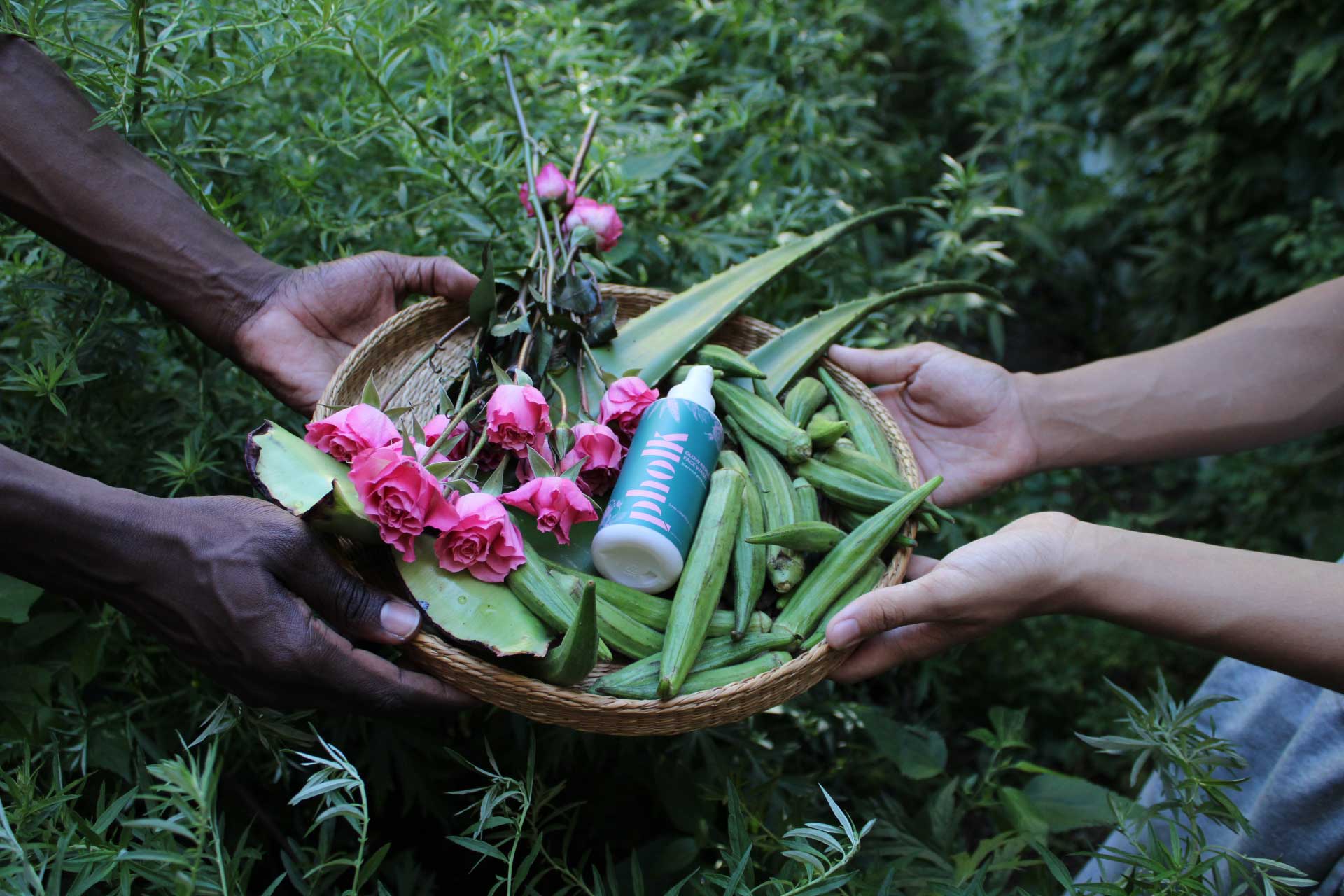Last week I got a call from one of my favorite Black farmers, Bernard Singleton of Nebedaye Farms. He was calling to tell me that it was planting season in North Carolina. That means that it's time for me to tell him what I'd like for him to plant for our products. I can't explain how much that call filled me with joy, hope and purpose!
Pholk is my love letter to the generations of Black farmers across the Southern US, Africa and the Caribbean. As the granddaughter of African American farm folk from the deep South, farming is in my DNA. My grandparents and community elders taught me how to grow superfoods like collards, okra and watermelon that had helped them emerge from slavery and keep hard-won land in the family. They used to tell me, "when you can grow your own food, you'll never starve."
When I lived in Europe and worked as an African Diaspora cultural expert I'd love to visit local herbal markets and farms during my trips to Africa, India and the Middle East. Through these experiences I witnessed first-hand how farming helped to lift other Black Diapsora communities out of poverty.
I wanted to do the same with Pholk. Yet, after launching in 2019, I quickly realized that I had a lot to learn about working with indie farmers. It's one thing to know how to formulate with African Diaspora botanicals. But sourcing from farms is a completely different story LOL! Although I grew up in semi-rural Kentucky, I didn't spend much time on working farms. So, on my first sourcing trip as a skincare founder, I was shocked by the poverty I witnessed in small rural communities in my home state, Georgia and the Carolinas. Lack of basic plumbing, no internet network, contaminated well water, and crumbling houses and trailers.
At the same time, visiting farms in the Southeastern US was like stepping into a living pharmacy. Bountiful rows of lemon balm, honeysuckle, okra, watermelon and roadside fields of wild honeysuckle and aloe. I was baffled by how such lush beauty could camouflage these hidden pockets of the Black rural poor. I knew that - together - we could create something beautiful, meaningful and transformational.
The first attempts at sourcing from Black American farmers were very humbling. My ingredient wish list received a lot of side eyes and sucking of teeth. SMH! Independent farmers just didn't have extra land to grow additional crops. That's when I realized that I could have way more impact by adding value to the superfoods already growing in their field. Okra, hemp, lemon balm, collards, watermelon, Carolina gold rice. These hardy, adaptive plants that had nourished Black Southern folk for generations were the perfect beauty foods.
Now, I won't lie. It's been much harder than I expected when I set that goal. Sometimes I’ve been fortunate enough to connect with Black-led farm cooperatives to buy ingredients that we already use, like our Kentucky-pressed hemp seed oil. Other times, I’ve swapped out a similar ingredient for one harvested in the US. For example, I replaced matcha powder with collard powder, and supplement rosehip seed oil with okra seed oil.
For new products like our upcoming Sol Food Facial mask, I let the superfoods growing in Black-owned fields inspire me. I go farms with an open mind and co-create my key ingredient list with the farmers. It gives new meaning to farm-to-face skincare.
After two years of working with and learning from numerous farmers, Black-led crop cooperatives, and nonprofit resources, I realized that a key obstacle is access to processing equipment. Similar to the urban poor, the support system for Black rural communities is broken. The farmers I met had the plants and customer demand. But without support, many of their crops and wild botanicals were left to rot in the field. An NPR analysis showed that only 36% of Black farmers received direct loans, in comparison to 72% of white applicants. Despite years of government attempts to fight loan discrimination , Black and Asian farmers still struggle to get the vital assistance they need to flourish and provide healthy, sustainable crops to market.
That's why we are taking the important step of investing in ingredient processing equipment over the next two years. Our goal for the 2023 Summer harvesting season is to purchase a 20 gallon herbal still to make hydrosols with the botanicals that our farm partners are growing for us.
To learn more about how you can support our work with Black cultivators, please contact us at care@pholkbeauty.com

